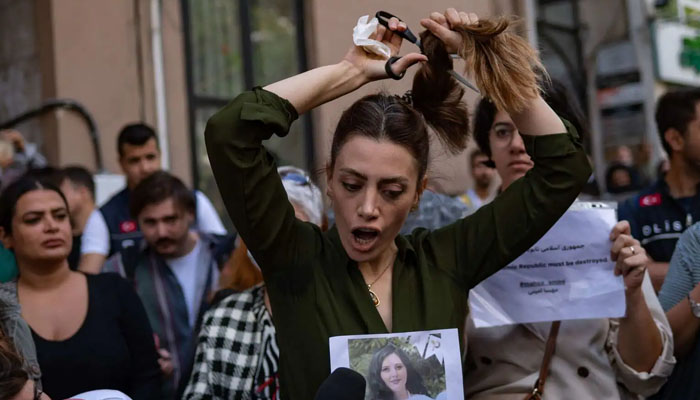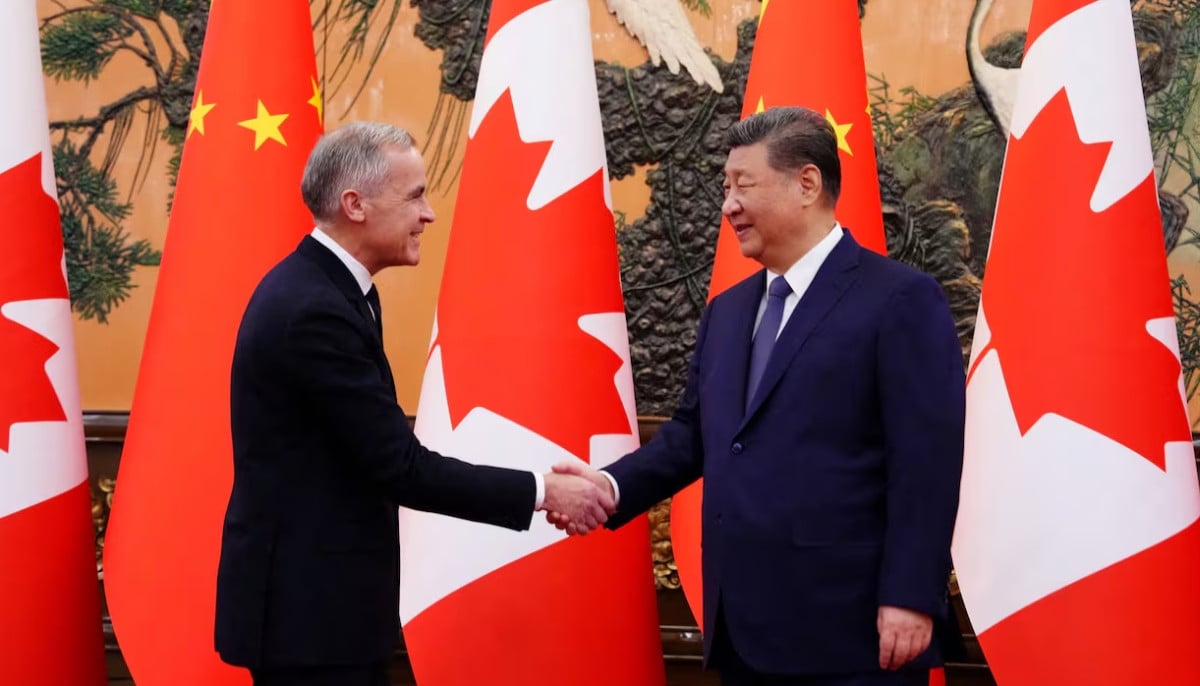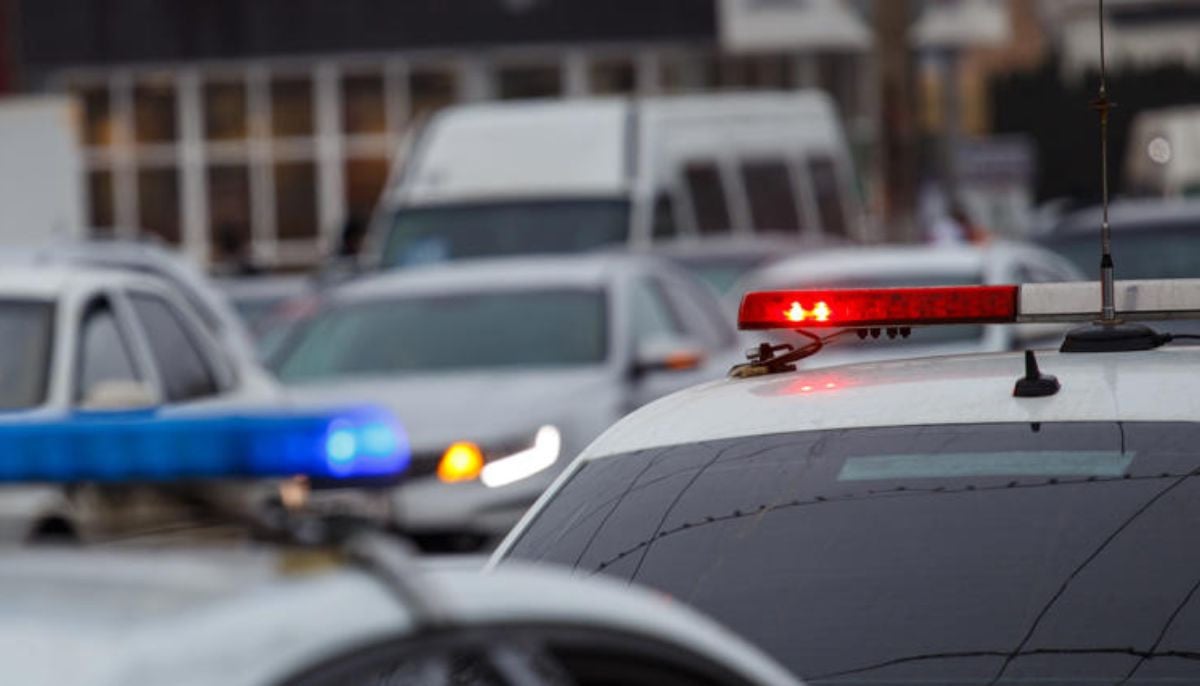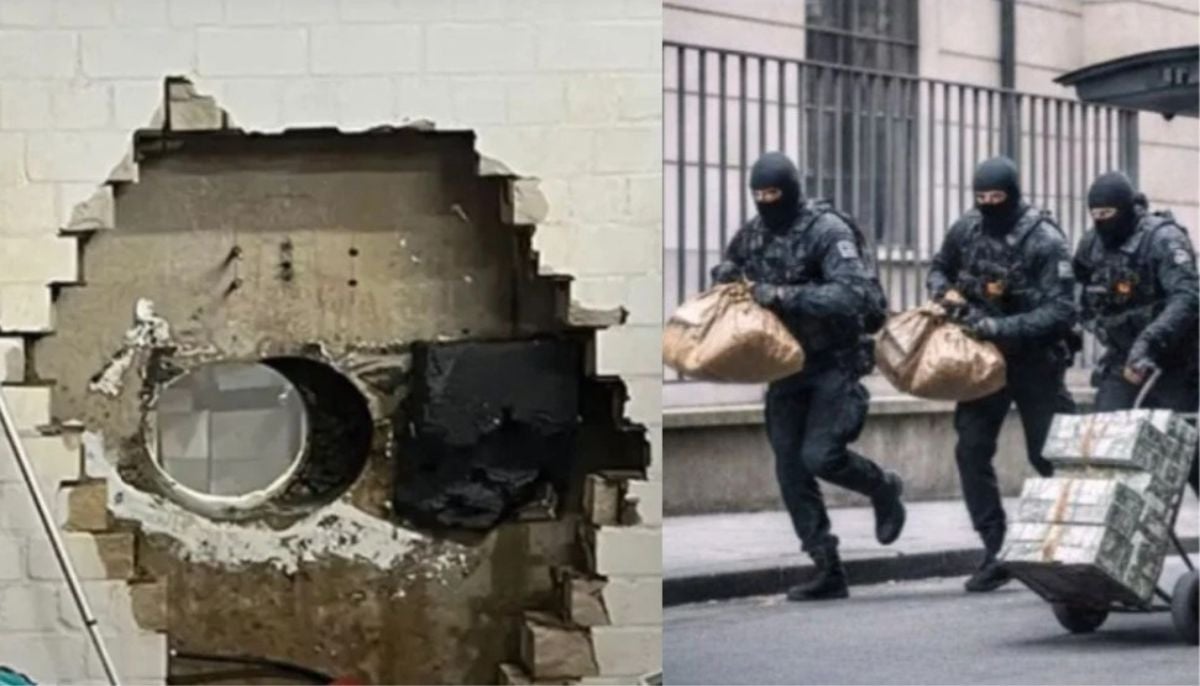Mahsa Amini anniversary: One year on, Iranian women continue to defy compulsory hijab
After Mahsa Amini's death, Iran authorities to bring additional penalties for girls and women protesting compulsory hijab
One year after the death of a 22-year-old Kurdish Iranian woman Jina Mahsa Amini in custody, women continue to protest in Iran defying the compulsory hijab law of the regime.
On September 13, 2022, in Tehran, Jina Mahsa Amini was detained and coerced into a vehicle by members of Iran's "morality police" due to claimed violations of the country's required hijab law. She then passed away on September 16, AFP reported.
Her passing provoked widespread protests across Iran. According to information obtained, which the UN Fact-Finding Mission is currently looking into, the state responded to the protests with excessive and unnecessary force, arbitrary arrests and detentions, unfair trials, extrajudicial executions, and harassment of victim's family members that have persisted to this day.
“Jina Mahsa should never have been arrested in the first place,” said Sara Hossain, Chair of the Fact-Finding Mission.
“Since Jina Mahsa’s death in custody, the Government of the Islamic Republic of Iran has failed to ensure truth, justice and reparations to her family, or to families of other victims, women, girls and all protesters who have been subjected to violations of fundamental human rights,” Hossain said.
“Instead, the Islamic Republic is doubling down on repression and reprisals against its citizens and seeking to introduce new and more draconian laws that severely restrict further the rights of women and girls.”
The Iranian Parliament is currently debating a draught bill that, if approved, would place women and girls at a higher danger of harassment, violence, and arbitrary arrest, AFP reported.
For women and girls who violate the laws requiring the wearing of veils, the proposed legislation increases penalties and prison sentences. Additionally, it suggests more severe penalties, such as travel restrictions, vehicle impoundments, the denial of access to medical facilities and public services, as well as sanctions against enterprises.
According to Iranian officials, their investigations into Jina Mahsa's death are complete, and they discovered that her death was brought on by underlying medical issues rather than head or body damage.
Government investigations, according to the Fact-Finding Mission, have, nevertheless, fallen far short of international human rights norms and standards, including the requirements of independence and transparency.
“We are appalled that over the past year several protesters have died in custody following reports of torture, including Javad Rouhi, a young protester who was reportedly subjected to torture and remained detained even after his death sentence had been overturned,” said Shaheen Sardar Ali, Member of the Fact-Finding Mission.
“The onus remains on the State to clarify the circumstances and cause(s) of Jina Mahsa’s death in custody as well as that of other protesters, including Javad Rouhi, with full transparency and accountability,” said Sardar Ali.
Authorities have increased their harassment and intimidation of demonstrators' family members, especially children, in the lead-up to the anniversary of Jina Mahsa's passing, BBC reported.
In recent weeks, it has allegedly been claimed that dozens of family members, especially those who have been openly grieving and demanding truth and justice for their loved ones slain in the protests, have also been detained or called in for questioning.
In a highly unsettling development, there are claims that authorities have bullied and harassed Ahmjad Amini, Jina Mahsa's father, in order to stop the family from grieving for their loss.
Safa Aeli, the uncle of Jina Mahsa, was detained on September 5, 2023, in Saqqez by security personnel; his whereabouts are still unknown. The gravesite of Jina Mahsa has also been harmed on at least
Furthermore, according to official sources, Jina Mahsa’s family’s lawyer, Saleh Nikbakht, has been summoned for questioning and is standing trial on charges of "propaganda activity.”
Two journalists who covered her case, Niloofar Hamedi and Elahe Mohammedi, remain detained and are undergoing trials on charges of “collaborating with a hostile government,” “gathering and colluding with intent to commit crimes against national security,” and “propaganda activity against the system.”
Another journalist, Nazila Maroofian, has reportedly been convicted of “propaganda against the system” and “spreading lies in order to disturb the public opinion” and is now facing charges of “promoting vice.”
“Victims’ families have a right to mourn and commemorate their loved ones according to their cultural and religious beliefs, including through the holding of public ceremonies. Under international human rights law, the State must respect and ensure the right to seek truth, justice and reparations of victims and their families and refrain from intimidation, harassment, and reprisals,” Viviana Krsticevic, Member of the Fact-Finding Mission, said.
The Fact-Finding Mission has repeatedly requested information from the Iranian government but has received no response yet. The Mission will deliver a thorough report on its findings to the Human Rights Council via an interactive conversation at its 55th session in March 2024.
-
China confirms visa-free travel for UK, Canada nationals
-
Bad Bunny's star power explodes tourism searches for his hometown
-
Murder suspect kills himself after woman found dead in Missouri
-
Poll reveals majority of Americans' views on Bad Bunny
-
Man convicted after DNA links him to 20-year-old rape case
-
California cop accused of using bogus 911 calls to reach ex-partner
-
'Elderly' nanny arrested by ICE outside employer's home, freed after judge's order
-
key details from Germany's multimillion-euro heist revealed














